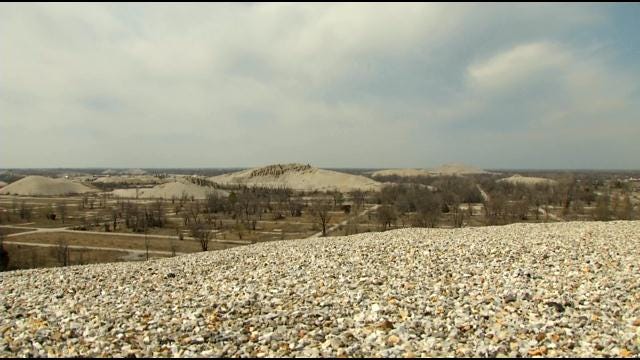Quapaw Tribe Claims Federal Government Mistreated Members In Lawsuit
The tribe has filed a $175 million lawsuit saying the government destroyed its land and stole money from its members.Monday, April 1st 2013, 4:35 pm
The Quapaw Nation says it's fed up with the way it's been historically treated by the U.S. government.
The tribe has filed a $175 million lawsuit saying the government destroyed its land and stole money from its members. It says there's no better example than the town of Picher, which became a ghost town, populated only by abandoned homes and piles of mining waste, called chat.
Picher was once the home of the largest lead and zinc mining operation in the country, and produced billions of dollars of ore in the early 1900s.
But before the miners took over the area, the corner of Oklahoma was home to the Quapaw Nation. The tribe was forcibly moved there in the 1830s.
"It's unbelievable that they're even wanting to fight us, because it's a horrible history," said Quapaw Tribal Chairman John Berrey.
3/26/2013 Related Story: Quapaw Tribe Sues Federal Government For $175 Million
The tribe recently filed a $175 million lawsuit against the federal government. It claims the Bureau of Indian Affairs mistreated, lied, and stole money from Quapaw tribal members for several decades.
"When people get really beat down, it created a generation that had a real difficult time, and we're hacked off about that. We don't think it was fair to treat our grandparents like that," Berrey said.
The tribe's biggest issues stem from all of the mining on its land. The BIA allowed the land to become contaminated, the tribe says, with mining waste and toxic ponds, making it unsuitable for farming or to raise animals. The tribe claims federal agents swindled Quapaw members out of the rightful ownership of their mineral rights and destroyed their way of life.
Chairman Berrey said he has evidence showing that agents for the federal government actually took money out of the bank accounts of Quapaw Nation members--in one case alone, he says, more than a million dollars.
"They didn't care about the Quapaws, at all, and they took advantage of us. They took a lot of money from us. It was another era when, I guess, that was okay," Berrey said.
Berrey said the tribe had been negotiating with the Department of Justice for several years, but the Department of Justice recently recanted on its offer. He said he hopes the lawsuit shines a light on the way Native Americans were treated by the federal government in centuries past.
Berrey said this process could take as long as three years. He doesn't expect a resolution before then.
More Like This
January 2nd, 2025
September 29th, 2024
September 17th, 2024
Top Headlines
March 31st, 2025
March 31st, 2025
March 30th, 2025












